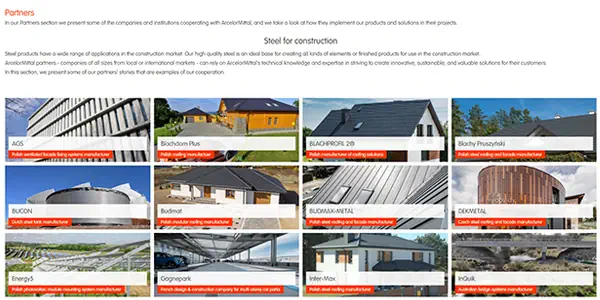About Borregaard
Borregaard owns one of the world's most advanced and sustainable biorefineries. By using natural, sustainable raw materials, Borregaard produces advanced and eco-friendly biochemicals that can replace oil-based products. Borregaard has 1010 employees in factories and sales offices in 16 countries in Europe, America, Asia, and Africa. Borregaard also has strong positions in ingredients and fine chemicals.
About Borg Havn
Borg Havn Iks was founded in 2000. The company's line of business includes marine cargo handling services. Borg Havn Fredrikstad and Sarpsborg offers easy access, large capacity, and efficient logistics. They provide simple cargo handling and short boat times. The port is therefore a natural alternative for the transport industry, and they are a preferred partner within maritime transport and logistics. From Borg Havn, it is just a short distance to the E6, upon which you can reach Oslo in under an hour, and it takes only 20 minutes to reach Svinesund in Sweden.
ArcelorMittal contributes to sustainable transport in Norway
Borregaard, a Norwegian biochemicals producer, is currently building a new warehouse that will allow them to store all of their lignin in one place instead of different sites, thus improving logistics and reducing CO2 emissions from road transport. The warehouse is being built with beams from ArcelorMittal Europe – Long Products Sections and Merchant Bars.
330 tonnes of beams from Belval
Borregaard and the logistics company Borg Havn are building a modern, sustainable lignin warehouse in Øra, near Fredrikstad in Norway. The structure of this new 19 000 square-metre warehouse is currently being built with 330 tonnes of beams produced by ArcelorMittal Europe – Long Products Sections and Merchant Bars' mill in Belval, Luxembourg.
A modern, sustainable lignin warehouse
The new warehouse will bring many benefits:
- Optimise product flow and improve logistics: Today, Borregaard stores lignin at a number of different sites, several of which are outside the company's premises. Lignin is currently transported via Borregaard's own port facility or by road to Borg Havn for delivery to customers. A new warehouse to store all of the lignin will therefore mean more efficient logistics with fewer stages of transportation.
- Strengthen the position of the port: "Increased volumes will allow for transport to more European destinations, which will also benefit other users of the port. In this way, sea transport will increase and heavy road traffic will decrease," says Tore Lundestad, Port Director of Borg.
The building has also been designed with energy-saving solutions such as roof-mounted solar cells.
Zero-emission solutions
Borregaard is keen to have efficient zero-emissions solutions for the transportation of raw materials to its production facilities and products to its customers. In addition to a joint pilot project to study possible autonomous transport solutions by ship across the Glomma river between Sarpsborg and Fredrikstad, Borregaard is also looking into the future potential for road transport using electric vehicles.
"This project will reduce CO2 emissions from road transport and relieve traffic growth on European roads. It will also greatly reduce the local heavy transport related to Borregaard's exports from Borg Havn," says Per A. Sørlie, CEO of Borregaard.
Borregaard's plant in Sarpsborg has an annual lignin capacity of 160 000 tonnes, and an increasing proportion is speciality products. A centralised warehouse at Borg is part of a project where Borregaard is investing 500 million NOK in upgrading and specialisation of the Sarpsborg plants producing lignin products. The project also involves enhanced drying capacity, new ideas for the storage of liquid materials, and improved solutions for logistics, infrastructure, and energy.
The warehouse will be completed by the end of 2019.
Text: ArcelorMittal Europe, Constructalia
Photos: Henning Klausen at Metacon


























